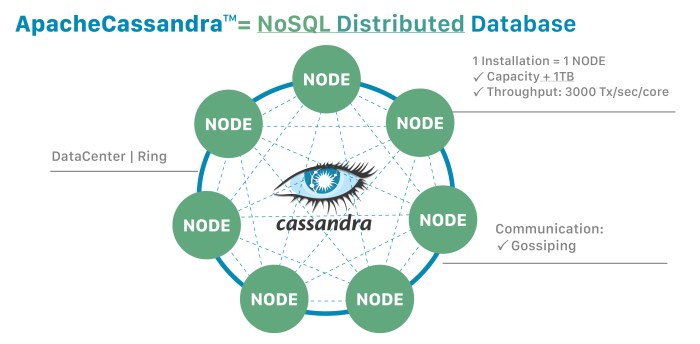Cassandra in Greek myth crossword, a figure shrouded in tragedy and prophecy, invites us to explore the complexities of fate, belief, and the consequences of unheeded warnings. Her story, woven into the fabric of Greek mythology and immortalized in art and literature, serves as a poignant reminder of the human condition and the enduring power of truth.
From her origins as a priestess of Apollo to her ill-fated role in the Trojan War, Cassandra’s journey is marked by both divine favor and relentless torment. This introduction sets the stage for a captivating exploration of her character and the enduring legacy she left behind.
Cassandra in Greek Mythology

In Greek mythology, Cassandra was a Trojan princess blessed with the gift of prophecy. Her prophecies were always true, but she was cursed to never be believed.
Cassandra’s Gift of Prophecy
Cassandra’s gift of prophecy was bestowed upon her by Apollo, the god of prophecy and healing. According to legend, Apollo fell in love with Cassandra and promised her the gift of prophecy in exchange for her love. However, when Cassandra refused his advances, Apollo cursed her so that her prophecies would never be believed.
Cassandra’s Relationship with Apollo
Cassandra’s relationship with Apollo was a complex and tragic one. Apollo was both her tormentor and her protector. He granted her the gift of prophecy but also cursed her so that no one would believe her. This curse made Cassandra’s life a living hell, as she was constantly ignored and ridiculed.
The Tragic Consequences of Cassandra’s Prophecies
Cassandra’s prophecies were always true, but they were never believed. This led to a series of tragic consequences, including the Trojan War. Cassandra warned the Trojans of the impending war and the destruction of their city, but they refused to listen to her.
As a result, Troy was destroyed, and Cassandra was taken as a slave by Agamemnon.
Cassandra’s Curse

The Nature of Cassandra’s Curse
Cassandra’s curse was a double-edged sword. On the one hand, it gave her the gift of prophecy, which allowed her to see the future. On the other hand, it also made her a pariah, as no one would believe her prophecies.
This curse had a profound impact on Cassandra’s life, both psychologically and socially.
How Cassandra’s Prophecies Were Always True but Never Believed
Cassandra’s prophecies were always true, but they were never believed because she was cursed by Apollo. Apollo was angry with Cassandra because she refused his advances, so he cursed her so that no one would ever believe her prophecies. This curse had a devastating effect on Cassandra’s life, as she was constantly ignored and ridiculed.
The Psychological Effects of Cassandra’s Curse, Cassandra in greek myth crossword
Cassandra’s curse had a profound psychological impact on her. She was constantly tormented by visions of the future, which she knew would never be believed. This led to feelings of isolation, despair, and madness. Cassandra’s curse is a powerful reminder of the dangers of hubris and the importance of believing those who speak the truth.
Cassandra’s Role in the Trojan War
Cassandra’s Warnings about the Trojan War
Cassandra warned the Trojans of the impending war and the destruction of their city. She prophesied that the Greeks would use a wooden horse to enter Troy and that the city would be burned to the ground. However, the Trojans refused to listen to her warnings, and as a result, Troy was destroyed.
How Cassandra’s Prophecies Were Ignored by the Trojans
Cassandra’s prophecies were ignored by the Trojans because they were blinded by hubris. They believed that their city was invincible and that they could defeat the Greeks easily. They also refused to believe Cassandra because she was a woman, and women were not considered to be credible sources of information in ancient Greece.
The Significance of Cassandra’s Role in the War’s Outcome
Cassandra’s role in the Trojan War was significant because her prophecies could have prevented the war and the destruction of Troy. However, her warnings were ignored, and as a result, the war occurred and Troy was destroyed. Cassandra’s story is a tragic reminder of the importance of listening to those who speak the truth, even when it is difficult to hear.
Cassandra in Art and Literature
Cassandra’s Portrayal in Art and Literature
Cassandra has been portrayed in art and literature for centuries. She has been depicted in paintings, sculptures, and plays. Some of the most famous depictions of Cassandra include the painting “Cassandra” by Dante Gabriel Rossetti and the play “Agamemnon” by Aeschylus.
Different Interpretations of Cassandra’s Character
Cassandra has been interpreted in many different ways in art and literature. Some interpretations focus on her as a tragic figure who is doomed to suffer because of her gift of prophecy. Others focus on her as a strong and courageous woman who speaks the truth even when it is difficult to hear.
Symbolism and Themes Associated with Cassandra in Creative Works
Cassandra is often associated with the themes of prophecy, truth, and madness. She is a symbol of the dangers of hubris and the importance of believing those who speak the truth. Cassandra’s story is a powerful reminder that even when the truth is difficult to hear, it is important to listen to it.
Frequently Asked Questions: Cassandra In Greek Myth Crossword
Who was Cassandra in Greek mythology?
Cassandra was a Trojan princess and priestess of Apollo, known for her gift of prophecy and her tragic fate.
What was Cassandra’s curse?
Apollo cursed Cassandra to never be believed, even though her prophecies were always true.
What was Cassandra’s role in the Trojan War?
Cassandra warned the Trojans about the dangers of bringing the Trojan Horse into the city, but her prophecies were ignored.